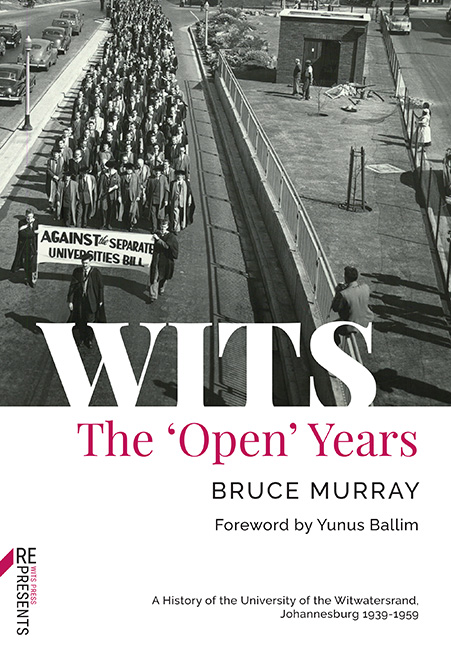8 - Arts and Science
Published online by Cambridge University Press: 24 November 2023
Summary
The major growth faculties in the post-war era, along with Commerce, were Arts and Science. Between 1945 and 1959 enrolments in Arts virtually doubled, from 629 to 1 236, even though part-time classes in the faculty were abolished in 1950. The number of full-time academic staff rose from 38 to 73. In Science enrolments trebled, jumping from a mere 184 to 553, and full-time academic staff increased from 41 to 69. While the prospects in the public service for English-speaking students educated at Wits evaporated after 1948, the vast post-war expansion in the Transvaal’s teaching establishment was a major stimulus to enrolments in both faculties, and so too was the country’s industrial development. Science, which had become altogether more attractive as a consequence of the glamour that accompanied the scientific breakthroughs of World War II, was the more obvious beneficiary of industrialisation, with the Faculty of Science training scientists required by industry; but the growth in enrolments in the social sciences in the Faculty of Arts was also in part an offshoot of industrialisation. While some Psychology majors looked to a career as clinical practitioners, others were beginning to contemplate careers in public relations and personnel management; by the end of the 1950s the field of scientific personnel management in business and industry was perceived by the National Institute for Personnel Research, founded immediately after World War II, to be ‘gradually coming into its own’. The training of social scientists was not yet the chief function of the Faculty of Arts, but the social sciences were emerging as the main area of growth. Before the war, the chief role of the Faculty of Science at the undergraduate level had been to provide service courses for the faculties of Engineering, Medicine and Dentistry; in the post-war era its central activity became the training of scientists.
ARTS
While by no means the powerhouse for the study of the Arts in South Africa – the country was without any such powerhouse – the post-war Faculty of Arts at Wits was an exciting place for students.
- Type
- Chapter
- Information
- WITSThe 'Open' Years, pp. 233 - 288Publisher: Wits University PressPrint publication year: 2022



